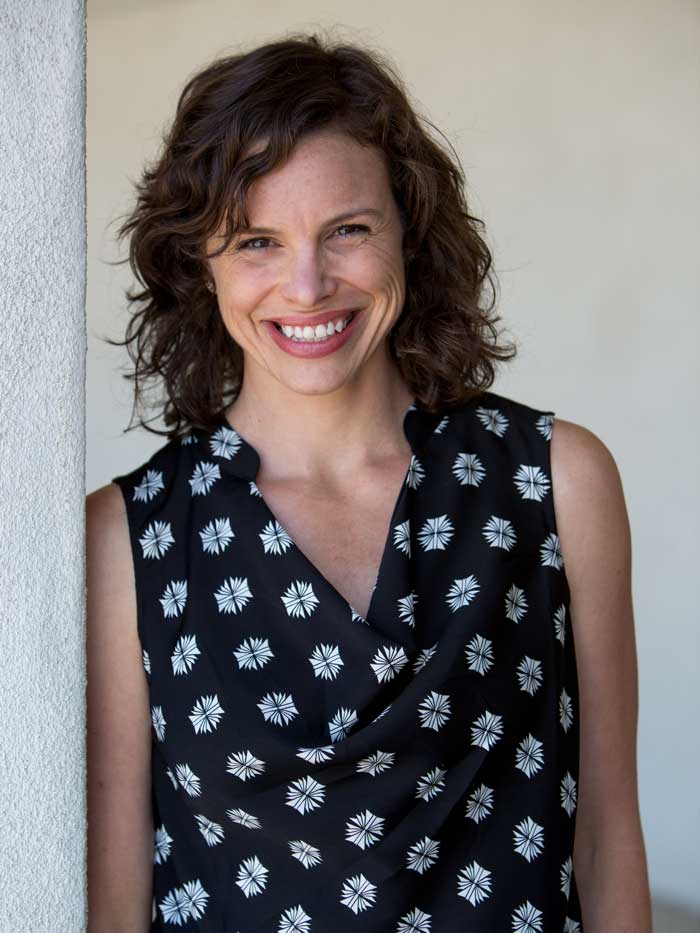
Michelle Dean
To prepare her students to become special education teachers, Assistant Professor of Special Education Michelle Dean first asks them to adopt the perspective of the children they will instruct.
“I give students opportunities to walk in someone else’s shoes,” she said. “They move through simulation scenarios to better understand what it’s like to have a disability, or to be the parent or service provider of someone with a disability.”
To experience impaired vision, her students in SPED/PSYCH 345: Individuals with Disabilities in Society walk blindfolded through the Bell Tower. To better grasp the challenges of a physical impairment, they evaluate campus building accessibility. Students also adapt common playground games for children with disabilities, interview people with disabilities about their experiences, and design intervention plans to meet a specific set of student characteristics, using research and behavioral observations.
“I like rooting for the underdog,” Dean said. “I’m particularly interested in understanding social and behavioral motivations, and how social and behavioral deficits can interfere with learning.”
Dean has an inherent tendency to cast students in roles that help the underdog. Before her career as an educator and interventionist, she worked in Hollywood as a casting associate. After casting an inner-city foster child in a Warner Bros. drama, she discovered a passion for working with children to overcome societal and behavioral challenges.
“I realized that I wanted to do more to serve my community,” she said. “In casting, I read lines with actors all day. I tried to understand the motivations and choices they made, and if I knew the director was looking for something different, I would adjust my behavior to elicit a different response from the actor. My time spent in casting was great training for me to be an interventionist. I observe students to understand the function of their behaviors, and I design interventions that teach the child more appropriate alternative behaviors that help get his or her needs met.”
Dean admits she was once an underdog student herself, until she excelled in music and theatre in high school and earned a scholarship to study voice in college.
“I was usually daydreaming in school,” she said. “Because I was quiet and compliant, teachers paid little attention to me, and often held low expectations about my academic abilities. When they tried to intervene, the most popular choices were shaming and criticism. My involvement in extra-curricular activities and theatre productions became my primary motivation to do well academically. Had I not been given the opportunity to have arts and drama electives, I would have fared very poorly in school.”
Her own experiences led Dean to develop a creative, individualized, and nurturing approach to engaging students. Her research on Autism Spectrum Disorder and the development of social skills in K-12 students has earned numerous grants and has been widely cited and published in sources including Education Week and the Journal of Child Psychology and Psychiatry.
However, Dean’s greatest triumphs lie in the successes of the students she’s taught. She proudly mentions three students with autism she began working with in the first grade who are graduating from high school and applying to college this year.
“Being a special education teacher is a great job,” she said. “It’s easy to find purpose in going to work each day. It’s wonderful to see students grow, become more self-aware, and overcome obstacles.”
